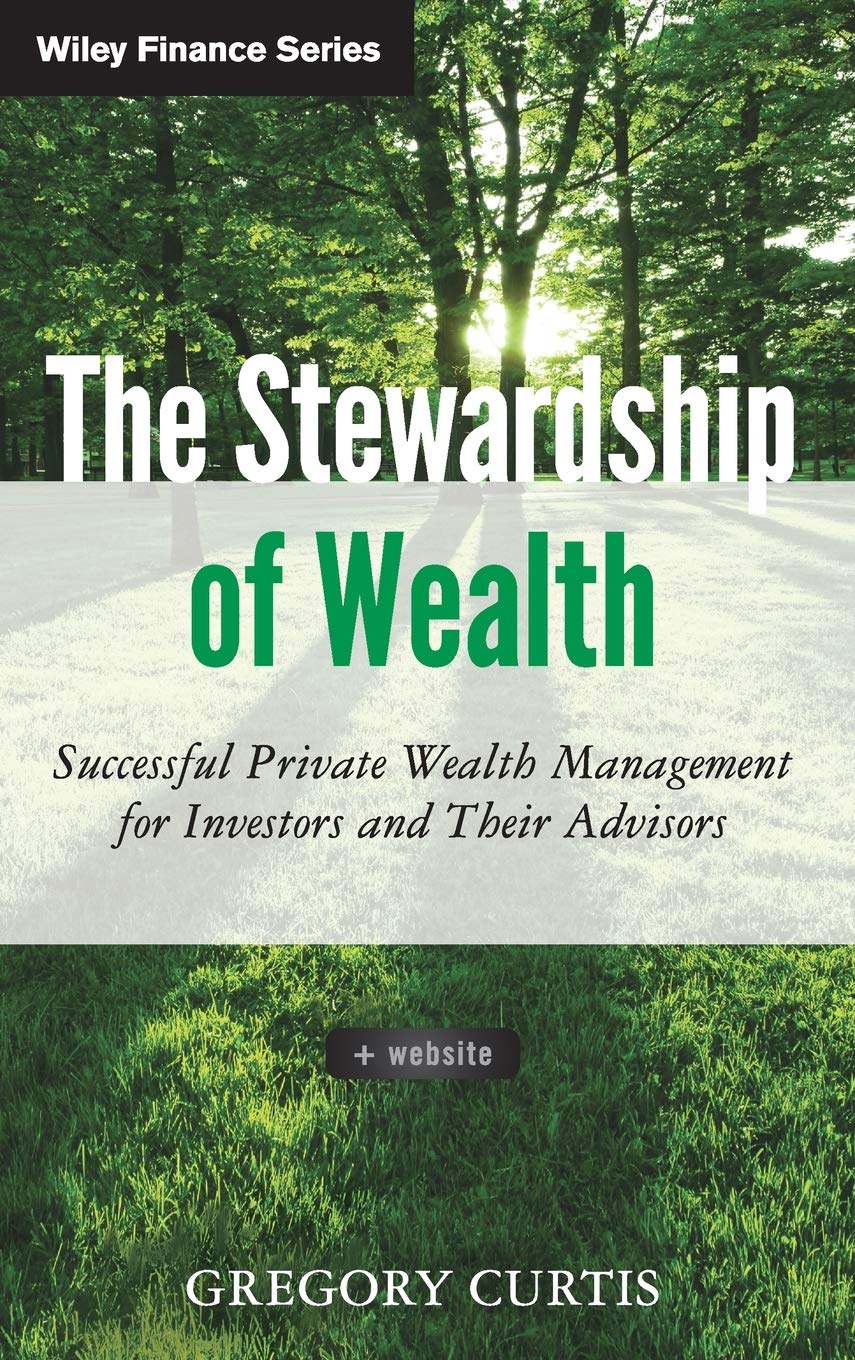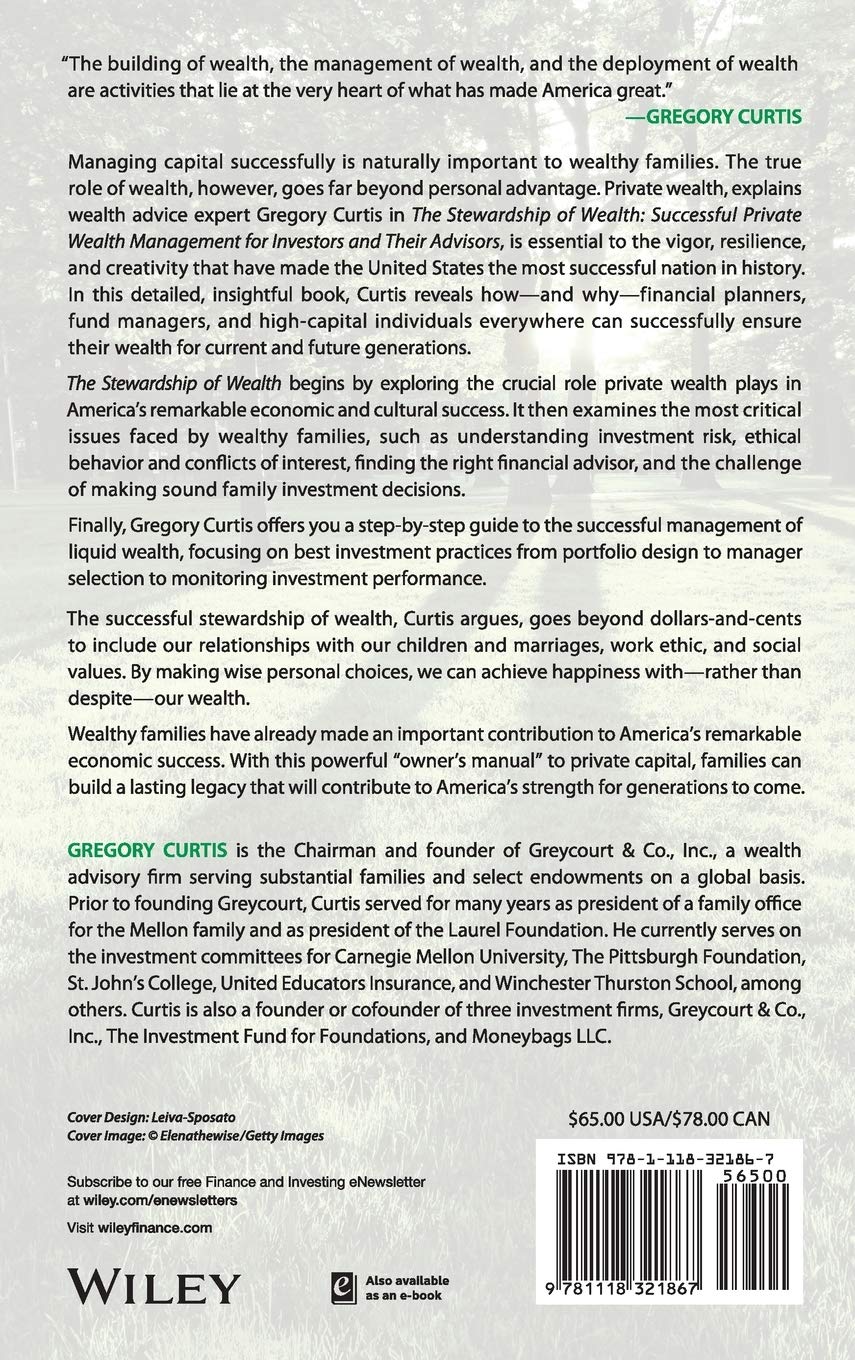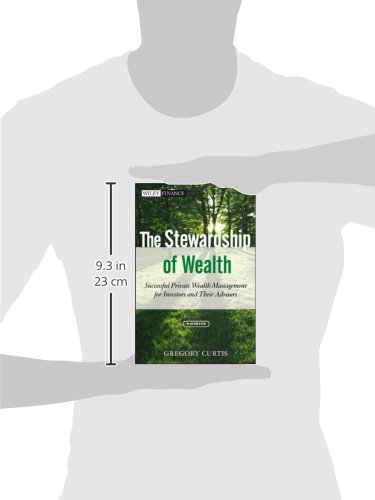



Full description not available
A**.
Good book but too much belief in active management
I am a firm believer in low-cost index fund investing. Therefore, I do not believe that active management of mutual funds adds any value, and the return is usually lower than an index fund after expenses are figured in.Curtis advocates active management and believes you can pick out managers that will giver returns exceeding passive index fund management. He does advocate using index funds for US large caps and wants a manager who sells losers to offset gains for tax purposes. My research on the Vanguard stock index funds shows that Vanguard is incredibly tax efficient with regards to managing their index funds.Curtis also reviews the age-old discussion about whether small caps really outperform large caps. He argues that if commissions and spreads are figured in, small caps may not really outperform large caps.Curtis advocates having 8 to 10% of your stock asset allocation invested in emerging market stocks.The most interesting thing I found in this book was Curtis's formulation of the three strategies used in the 20th century for redistributing wealth. In time sequence, the first strategy tried was for the government to seize control of the means of production. The second strategy was tax the income of the wealth. The third strategy is government borrowing. He notes that the demands for services by the citizens always quickly overwhelm the capacity of each strategy to redistribute wealth.Curtis also points out that rebalancing your portfolio does not apply to really wealthy families. People with less than $1 million in net worth probably have retirement accounts that can be used for rebalancing without paying any taxes. If you have $100 million, you probably have less than $1 million in retirement funds, and therefore you can do tax-free annual rebalancing.Except for his belief in active management, I really can't argue with any of Curtis's recommendations. I think you will get more bang for your buck by reading Stuart Lucas's book Wealth than reading this book.
K**R
Thought provoking and insightful
I am about half way through "The Stewardship of Wealth" and I can't put it down. I admire your having the strength of your convictions and the moral courage to "tell it like it is". The pervasive underlying theme is that of the need for morality --- and it is not only needed in the business and financial arena but throughout our society. How far we have drifted from the moral premise upon which our Founding Fathers based our Constitution!I expect to read your book several times in order to fully absorb the finely articulated content. I am particularly impressed with the vast array of superb authors upon whom you've drawn. The footnoted bibliographies are extensive and something into which I will vigorously delve.I am going to buy a copy of "The Stewardship of Wealth" for each of our sons' guidance and reading enjoyment. I am confident both will enjoy it immensely.
E**L
Excellent Guide for Families of Wealth
The Stewardship of Wealth provides genuinely practical advice on wealth management that is useful for both families and their advisors. Much of his advice sounds obvious (i.e. your default position should be to use passive index investments unless the potential returns for active management justify the higher fees) but he tells it in a way that is convincing and articulate for investors of all levels.Curtis's style gives some life into what can otherwise be a very dry subject, and while readers may or may not agree with his investment philosophy, at least they can understand it (something that is often lacking in other wealth management books). Too many investment authors focus on sounding as smart as possible while losing much of their audience. Curtis seems to strike the right balance between demonstrating his knowledge and authority on the subject while not losing the very readers to whom the book is targeted.Overall a very good read and worth the time for those either in the business of wealth management or the families served by the wealth management industry.
G**Y
Book Review, The Stewardship of Wealth by Gregory Curtis
The Stewardship of Wealth by Greg Curtis is a must read. Greg Curtis does a deep dive into the economics, culture, heritage, values associated with the stewardship and preservation of capital. Along the way, he tackles historical and timely macro and micro economic considerations related to wealth management. Curtis clearly articulates opportunities and pitfalls in financial management, while providing a clear road map for families and professionals to consider.Whether or not you are a private investor, family office manager, attorney, financial advisor, accountant or philanthropist--you will find great value in this book. You don't need to be a millionaire to benefit from the concepts, ideas, and best practices Curtis presents.Greg Curtis has fun with the topic, as well. I found myself chuckling throughout the book at the humorous anecdotes and relative experiences. I have already forwarded, referenced and recommended the book to colleagues, clients, and friends, alike.
A**A
A worthwhile read
This is an excellent, comprehensive guide to wealth management written by someone who is truly in the know. There are some wannabes out there these days writing about wealth management and family offices, but this book is the real deal. It is long, it will take you a while to get through but the information is helpful and it's also written with a sense of humour and a willingness to stake out some ideas some people may find controversial. This book would be worthwhile for both high net worth individuals, families as well as their advisors. Not often you see a book that so well covers what wealth management really is.
Trustpilot
3 weeks ago
1 week ago